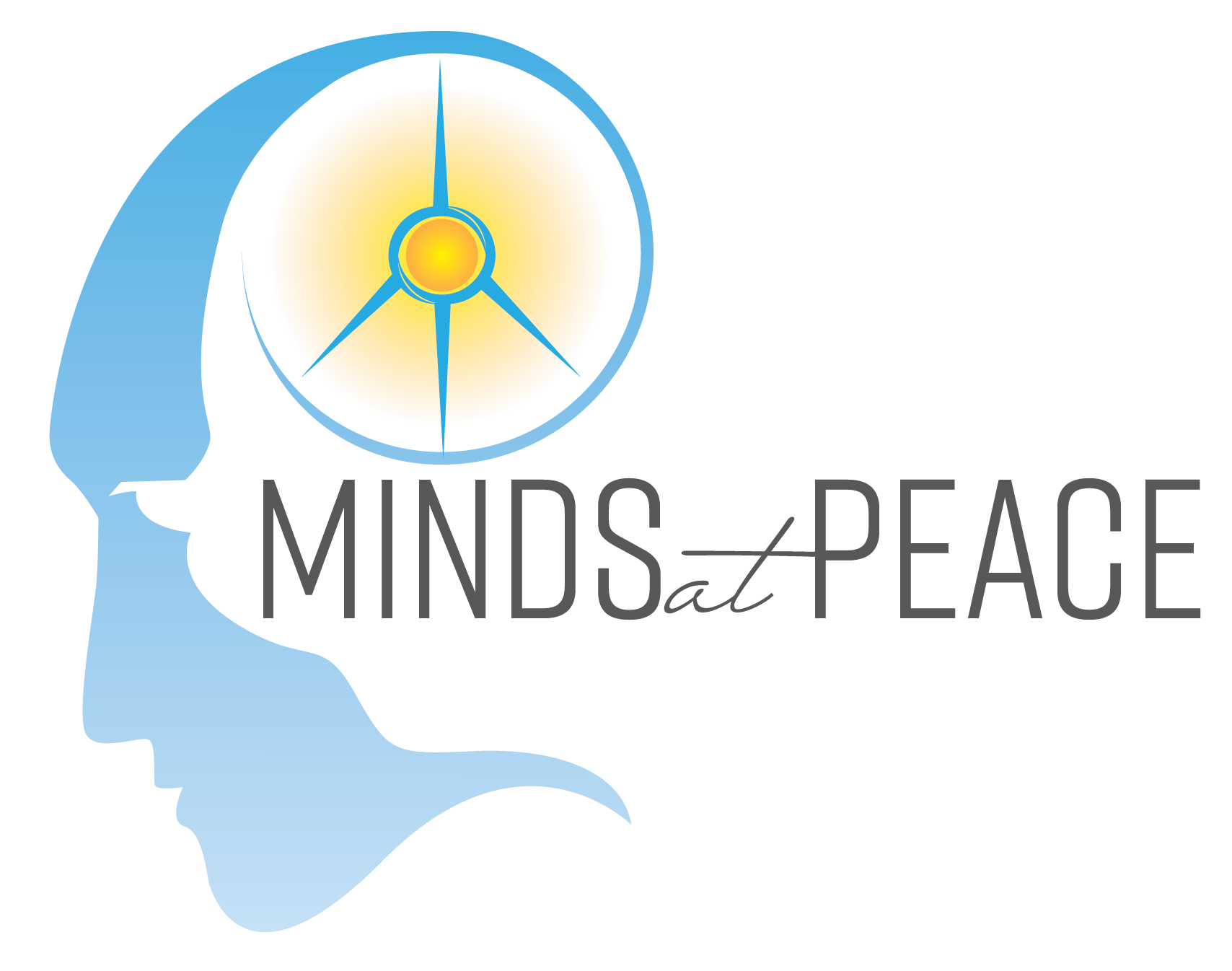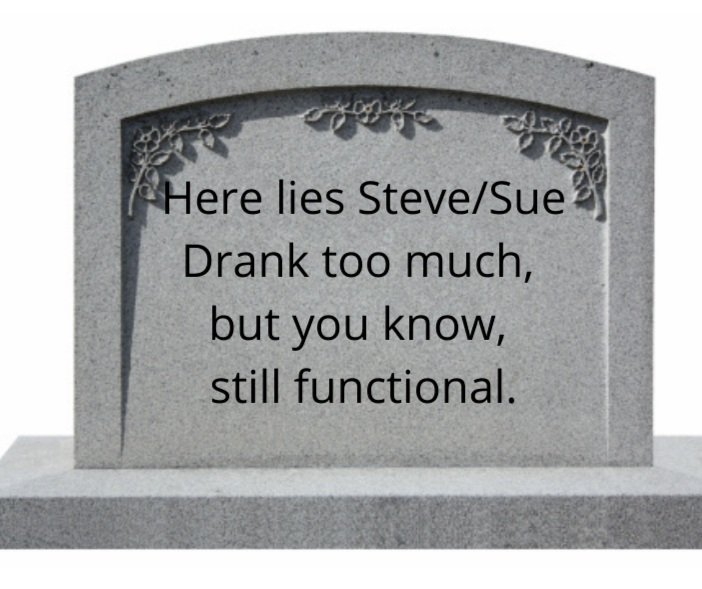Drinking or smoking too much? How do I know if I need help?
It’s that time of year. The pull of the calendar beckoning you to reflect upon your behavior over the last 12 months. And one question keeps popping up. Am I drinking or smoking (nicotine or weed) too much? How can you tell if what you’re doing (or maybe someone you love) has crossed the proverbial line? Great question, and trust me, you are not alone in asking.
Let’s take a look.
Problems involving alcohol or marijuana occur on a continuum. Often I hear, “Well I don’t drink every day” or “I’m not homeless” or “I still go work.” Okay, but let’s be clear about something. Functional is NOT optimal. (See my blog on that topic). And I’m pretty sure you weren’t put on this earth to be “functional”. Is this what you want on your tombstone:
How much is too much?
Quantity and frequency play a part but it’s not just a numbers game. When I engage someone in their initial assessment that’s not the first question I ask. If we just stick to the numbers it’s easy to get caught up in “everybody drinks like that.” (At least everyone you hang out with maybe). Alcohol is embedded in our culture, there’s no denying. But what is it doing to you?
Truth or consequences?
Remember that old TV show? Or maybe never heard of it? No worries. But ask yourself, “Am I being truthful to myself? Can I acknowledge the negative consequences alcohol or marijuana are causing in my life?”
Take a look at the various domains in your life.
Health: Is the quality of my sleep adversely affected? If the answer is yes you already know that can lead to a cascading series of negative consequences, i.e. feeling crappy, poor decisions, irritable, less productive at work, and on and on. Alcohol damages every organ in the body, including the brain, weakens your immune system (you want to do that now?) and increases the risk of essentially every kind of cancer (and ladies are you aware of the increase risk of breast cancer?). Marijuana won’t kill you (unless you smoke and drive) but when started early and heavy can lead to psychosis that is permanent even if you stop smoking.
Work/School: Is your substance use affecting your performance at work and school? Are you just as productive with a hangover than without? Worried it will get worse or someone will say something? Showing up late or missing classes? Failing classes?
Loss of control: That’s when you planned on drinking or using a certain amount, made promises to self or others but couldn’t follow through. Does this happen repeatedly? Blacking out? (not remembering what happened when drinking). As much as people feel they have more fun when they drink in no way does anyone like the feeling of waking up and not remembering what happened or having people tell or show you (Hey look Mom I’m on the Internet!). Our nervous systems are hardwired to avoid loss of control. We hate it.
Mental/emotional health: Heavy use of substances, particularly alcohol can make depression or anxiety worse. Temporarily better, but then worse. This leads to more drinking or using to feel “normal”. Ask yourself, “Is alcohol or marijuana my number one coping skill for stress?” and “Do I have withdrawal symptoms (physical or emotional) a day or two after I stop?”
Legal: This can be a wake up call for many. Are you minimizing that DUI(s) or seeing it as a major warning sign?
Relationships: This is probably the single most important domain in your life. Our happiness is centered more on relationships than anything else. What would your spouse or partner say about your substance use? How is it impacting your emotional connection? Your sex life?
What are my choices? Do I have to quit forever?!
The short answer is “it depends.” (You knew that was coming). But most people I encounter choose to begin with a harm reduction model. That means we take a look at the negative consequences and figure out ways to significantly decrease them. That might include a trial of being “sober curious” and just notice the difference. Everyone is different and it depends on where you are on that continuum. Talking to a compassionate substance abuse expert is the best way to find out.
How do I help a family member who is drinking or smoking too much weed?
First, don’t “detach.” If your goal is to motivate a loved one to change, i.e. enter treatment, that’s much more likely to occur if you engage. The Invitation to Change approach teaches family members to communicate without shaming, judging, blaming or criticizing. Instead, enhance the likelihood of your loved one seeking help by developing a collaborative relationship, while at the same time focusing on your own self-care.
Making the call for help.
The original definition of the word “courage” has nothing to do with military battles. It means “telling your story from your heart.” I’m ready to listen. Go ahead and make the call/text/email. You can find me at 513-666-1413 or Mark@mindsatpeace.net
Life’s hard enough right now. Let me help you make it better, a mind at peace.



